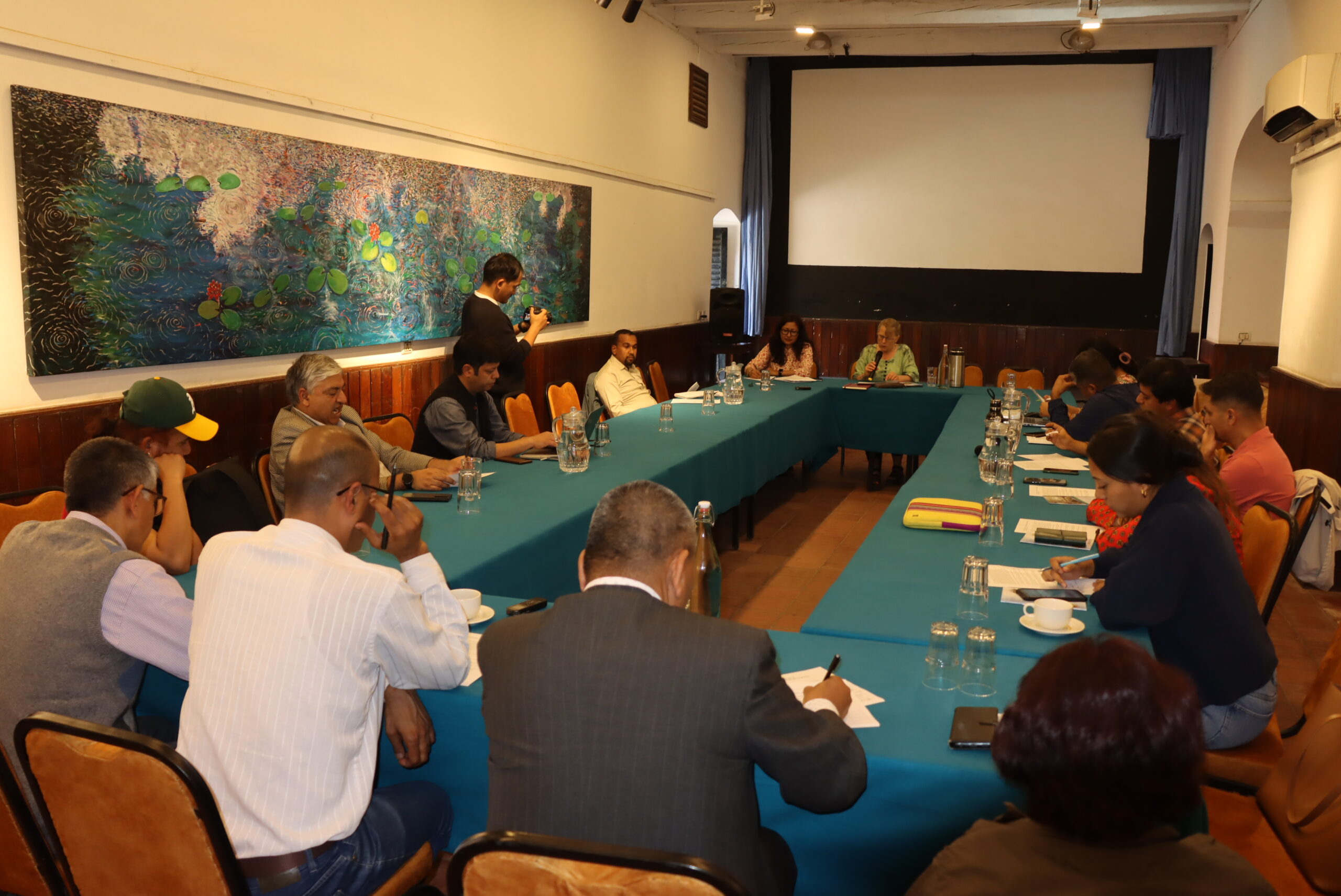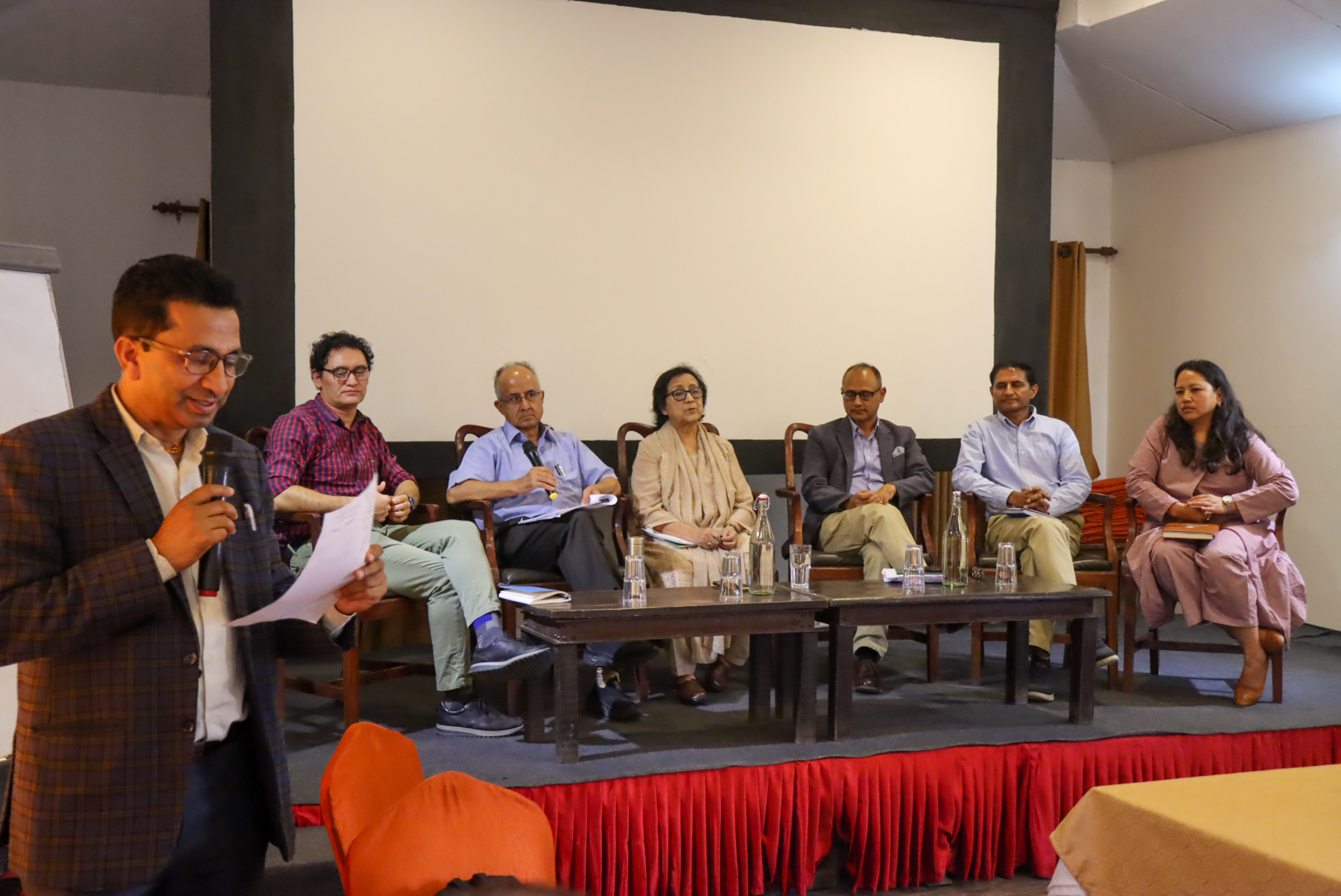On April 2nd, 2024, the Southasia Institute of Advanced Studies (SIAS) convened Future Himalayan Research Seminar, focusing on the “Lived experiences of vulnerability and struggle for prosperity among rural households in Nepalese mid-hills.” The seminar attracted a diverse array of stakeholders, both in-person and virtual. Dr. Anushiya Shrestha, Research Director of SIAS, facilitated the workshop, commencing with welcoming remarks and brief introductory session.
Following introduction, Mr. Kamal Devkota, a Ph.D. Researcher, (KU Leuven, Belgium) and Dr. Dil Khatri, the Executive Director of SIAS, delivered a comprehensive presentation. Mr. Devkota’s presentation illuminated the research context, challenges, conceptual framework and key findings emphasizing the intricate nexus between livelihood vulnerability, day-to-day stressors, and the pursuit of prosperity. The project employed a mixed method, including household (HH) surveys, transect walk, Key Informant Interviews (KII), conducted across four different field sites, Ramechhap (Ramechhap Municipality– Lyanglang, Khanidanda and Gokulganga Rural Municipality- Pharpu, Rasnalu) and Kavre (Dhulikhel Municipality- Raviopi, Patlekhet and Temal Rural Municipality – Yangbel, Chapakhori village). He underscored the notion that vulnerability stems not from isolated incidents but rather from societal structures and cumulative impact of multiple stressors. Migration emerged as a prevalent strategy among households seeking to sustain their livelihoods, albeit without significant improvements in overall well-being due to remittance. Furthermore, Mr. Devkota highlighted the policy and procedural obstacles hindering effective responses from local governments and other organizations during times of distress.
Subsequently, during a moderated discussion led by Dr. Khatri, participants engaged in exploring the potential strategies to address vulnerability across various dimensions. Dr. Bir Bahadur Khanal Chhetri, Dean of Institute of Forestry (IOF), highlighted a notable inconsistency: despite remittances being a significant contributor in Nepal’s economy, the study reported varying result against prevailing belief due to instability of income generation experienced by a considerable number of returnees, leading to subsequent hardships. Dr. Him Lal Shrestha, Vice-Principal of Kathmandu Forestry College (KAFCOL), advocated for a more inclusive research approach, encompassing diverse demographics across different geographical locations. Additionally, Dr. Shanta Raj Neupane, Chairperson of Community College, expressed his curiosity regarding the disparities in vulnerability of people between Nepal and India (Himanchal Pradesh), to which Dr. Khatri underscored the pivotal importance of strong support from both local government and non- government agencies during the time of difficulties.
Concluding the event, Dr. Anushiya Shrestha expressed gratitude to all participants for their invaluable contributions, emphasizing the significance of their insights in furthering the initiative’s objectives.




